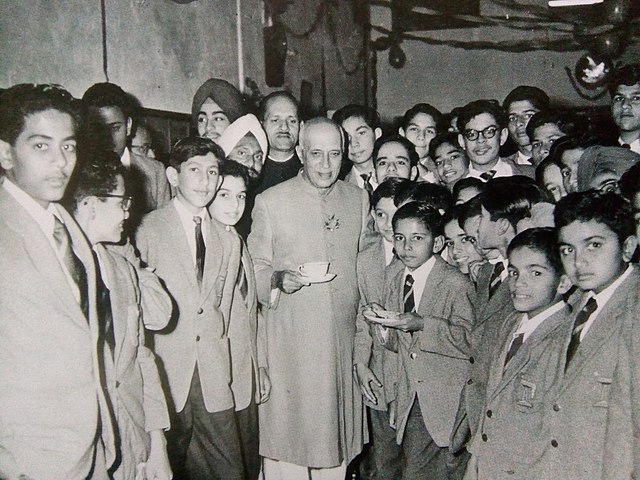In India, Children’s Day is observed on November 14th every year to celebrate the birth anniversary of Pandit Jawaharlal Nehru, who was the first Prime Minister of India. Jawaharlal Nehru, fondly referred to as “Chacha Nehru” (Uncle Nehru) by children, was known for his love and affection for young people. His birthday was chosen as Children’s Day to honor his commitment to the welfare, education, and well-being of children in India.

Jawaharlal Nehru believed that children were the future of the nation and should be given the best care and opportunities for growth and development. He played a pivotal role in the establishment of various educational institutions and policies aimed at improving the quality of education in India. His vision for a better future for children made him a beloved figure among them.
Children’s Day is observed as a day of celebration and reflection on the importance of nurturing and educating the younger generation. Schools and educational institutions often organize special events, cultural programs, and activities for children to mark the occasion. It’s a day to emphasize the rights and well-being of children and to promote their all-round development.
Jawaharlal Nehru, the first Prime Minister of India, made significant contributions to children’s welfare and education in India. His dedication to improving the lives of children and his vision for their future led to several initiatives and policies that continue to impact the country’s educational system and child welfare. Here are some of his notable contributions:
- Promotion of Education: Nehru recognized the importance of education in nation-building and placed a strong emphasis on universal education. He advocated for free and compulsory primary education for all children.
- Establishment of Educational Institutions: Under Nehru’s leadership, many prestigious educational institutions were established in India, including the Indian Institutes of Technology (IITs) and the Indian Institutes of Management (IIMs). These institutions have played a pivotal role in shaping the educational landscape of the country.
- Incorporation of Scientific Education: Nehru believed in the importance of scientific education and its role in fostering a scientific temperament among children. He encouraged the development of scientific research and educational institutions.
- Children’s Literature: Nehru wrote extensively for children and authored several books, including “The Discovery of India” and “Letters from a Father to His Daughter.” His writings aimed to make complex ideas accessible to young readers and inspire them to explore their country’s history and culture.
- Nehru Bal Pustakalaya: He established the Nehru Bal Pustakalaya (Nehru Children’s Library) to provide children with access to a wide range of books and reading materials. This initiative aimed to foster a love for reading and learning among children.
- Nurturing Creativity: Nehru recognized the importance of nurturing creativity and artistic talent in children. He supported initiatives to promote arts and culture among young people.
- Child-Focused Policies: Nehru’s government introduced various policies and programs to address child welfare issues, such as child labor and child health. These policies aimed to protect the rights and well-being of children.
- Advocacy for Child Rights: Nehru played a pivotal role in India’s ratification of the Universal Declaration of Human Rights, which includes the rights of children. He advocated for children’s rights both nationally and internationally.
- Legacy of Leadership: Nehru’s leadership and commitment to children’s welfare set a precedent for future leaders and policymakers in India, emphasizing the importance of investing in the country’s youth.
Jawaharlal Nehru’s contributions to children’s welfare and education in India continue to shape the nation’s educational policies and institutions, and his legacy lives on through the celebration of Children’s Day and the ongoing efforts to provide quality education and opportunities for children in the country.
